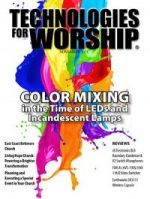Virtual Synths and Plug-Ins
Wow, talk about a brand new frontier… boldly going etc etc. Only a few years ago, the capabilities we are going to explore in this issue would have been unheard of. I am referring to the ability to have every conceivable keyboard, synth, effects processor and digital sampler available to you on your laptop computer. To be able to walk into a performance situation with said laptop under one arm and your trusty keyboard controller under the other. Boot up, plug in and you have at your disposal an arsenal of keyboardability that would have filled an entire wing of your local music store 20 years ago. Want a new keyboard? Go to the company’s website and listen to some examples of the sounds on-line. Want to try it out? Download the demo. Like it? Point – click – buy. Cha-ching!
It really wasn’t that long ago that the contemporary keyboardist would have had to read every review in every magazine and run around to different music stores to try each and every one of the keyboards they were interested in. They would spend thousands on each instrument, buy a plywood/aluminum case for each one and or carry them around in their very stylish 1965 Chevy van. Then they would get to the gig before the drummer and develop Sampson like strength from setting up their five latest and greatest “keys” on an elaborate keyboard stand which looked remarkably like a jungle gym. Ah, the good ole days.
Nowadays there is unbelievable musical horsepower a mere mouse click away, but there are definitely two sides to this story. If you or your church are already in possession of a keyboard that does everything you want or need it to, going down this virtual road may truly cause more grief than blessing. We have discussed in issues past the sometimes catastrophic appeal of getting the latest and greatest. With all of this new found power comes complexity.
One of the characteristics of the virtual plug-in world is that they must be hosted on and run from a computer. Computers sometimes do funny things seemingly all by themselves! This may be an ok situation in the studio, where a musical glitch caused by a hiccup in your system can simply be done over again. In a live situation however, a computer crash would be disastrous. Even the newest computers with the latest operating systems take time to reboot after a mishap, and this is all musical downtime in the virtual world. In a live performance, this is embarrassing. During worship, it is distracting and inexcusable.
Another part of the picture is that your computer will not have the built in audio capabilities to run high quality keyboard plug-ins. You will need to purchase an audio interface providing outputs to plug into your amp or PA system, and MIDI connections for you controller keyboard. (Remember, you still need to be able to play it!).
The benefits of keyboard plug-ins are fairly compelling. They can cost less than their wood and metal counterparts. They are easy to try out, simply go to a company’s website and download a demo. They are easy to purchase on-line. You just send the company your credit card info and they email you a serial number that will activate the demo that you already have installed on your computer. Simple.
On the other hand, the same advances that have made this technology possible on computers have also been incorporated into the latest lineup of digital keyboards. In truth, both are sort of the same. One is software being run on a processor in the form of a computer and the other is software being run on a processor in the form of a digital keyboard. In the case of the keyboard, it is all self-contained and ready to go in a relatively compact package. This provides much of the versatility and power of the plug-in scenario, along with the stability and confidence offered by a dedicated instrument. There is something to be said for the fact that you can hit the ‘on’ switch and the keyboard just works.
How do we summarize? It may be that you buy a digital keyboard for its performance stability. You may set up a computer-based rig for your songwriting/recording needs because of the open ended flexibility and ability to download new keyboards as they become available. However, remember that ultimately we are just trying to create music. Is your technology choice making that easier or harder?




